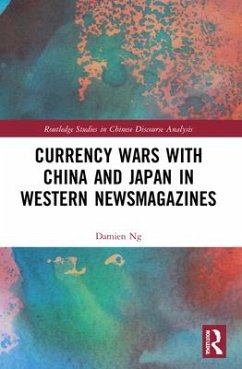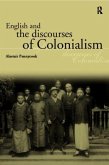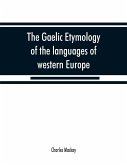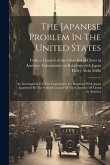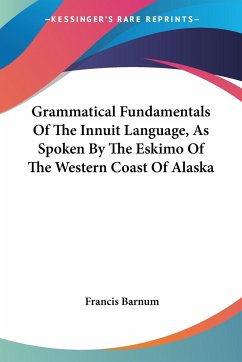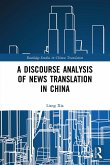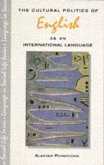This book explores China's currency wars with its trading partners in four Western newsmagazines: Time, The Economist, L'Express, and Der Spiegel. Based on both quantitative and qualitative approaches, the interdisciplinary approach adopted in the research draws on two analytical frameworks from the realm of critical discourse analysis - van Leeuwen's socio-semantic inventory of social-actor representation, and van Dijk's concepts of macro-rules - as the overarching approaches to understand the changing dynamics of international relations and the global economy through Western media. The sample in this study consists of 160 texts, half of which are focused on China and the other half on Japan, across a period of 12 months in 2010 (China) and in 1987 (Japan). Through the comparison of Western representation between China and Japan, the similarities and differences in their coverage have been revealed as even more striking with regards to global politics and the international economy. The findings obtained from the empirical research have revealed that China was not only reported more unfavourably than Japan in terms of depth, but also across a broader range of areas spanning economics, politics, and military affairs. It has also emerged that all the four Western newsmagazines tended to centre their coverage on the US and China in 2010, and the US and Japan in 1987, although they did not speak in one collective voice with regard to their coverage of China and Japan.
Hinweis: Dieser Artikel kann nur an eine deutsche Lieferadresse ausgeliefert werden.
Hinweis: Dieser Artikel kann nur an eine deutsche Lieferadresse ausgeliefert werden.
'Damien Ng's book could not be timelier and more solidly researched. At a time when currency wars could wreak havoc to a nation's financial system, there is surprisingly little serious study on how such wars were portrayed in the media and shaped public knowledge. Currency Wars with China and Japan in Western Newsmagazines is a refreshing and welcome study in this important field. Damien Ng offers a detailed and incisive analysis of news narratives about two US currency wars against China and Japan. It is worth reading by anyone interested in currency wars and the role of news media to mediate their meanings.'
Qing Cao
Associate Professor at Durham University, UK
'This book offers the reader an in-depth account of how ideological meaning generation operates in media narratives. By focusing on the genre of newsmagazines, Damien Ng brings a most welcome and innovative contribution to the existing scholarship in the domain of media discourse analysis. The comparison of how Western magazines portrayed the US currency wars with China and Japan in 2010 and 1987 respectively makes for a study, both rich in discourse-analytical depth and wide in scope, covering two major economic players in Northeast Asia and two different historical timeframes. Pointing out striking similarities, yet also differences in representational practices, this analysis will charm not only those interested in international trade disputes but also anyone studying ideology in the media.'
Lutgard Lams
Associate Professor at Catholic University of Leuven, Belgium
'The East and the West - an ancient and yet current way of dividing the world into 'us versus them' and 'the old versus the new' shows the multitude of divergences in terms of narratives and perceptions of global powers in America and Asia. Damien Ng has conducted a very detailed piece of scholarly research, which takes a language-based approach to understanding the changing dynamics of the global economy and international relations. This is particularly important, given the ongoing strategic rivalry between the world's two largest economies, the United States and China, which has a broad range of implications for investors, governments and companies alike.'
Christian Gattiker
Head of Economic Research at Bank of Julius Baer, Switzerland
Qing Cao
Associate Professor at Durham University, UK
'This book offers the reader an in-depth account of how ideological meaning generation operates in media narratives. By focusing on the genre of newsmagazines, Damien Ng brings a most welcome and innovative contribution to the existing scholarship in the domain of media discourse analysis. The comparison of how Western magazines portrayed the US currency wars with China and Japan in 2010 and 1987 respectively makes for a study, both rich in discourse-analytical depth and wide in scope, covering two major economic players in Northeast Asia and two different historical timeframes. Pointing out striking similarities, yet also differences in representational practices, this analysis will charm not only those interested in international trade disputes but also anyone studying ideology in the media.'
Lutgard Lams
Associate Professor at Catholic University of Leuven, Belgium
'The East and the West - an ancient and yet current way of dividing the world into 'us versus them' and 'the old versus the new' shows the multitude of divergences in terms of narratives and perceptions of global powers in America and Asia. Damien Ng has conducted a very detailed piece of scholarly research, which takes a language-based approach to understanding the changing dynamics of the global economy and international relations. This is particularly important, given the ongoing strategic rivalry between the world's two largest economies, the United States and China, which has a broad range of implications for investors, governments and companies alike.'
Christian Gattiker
Head of Economic Research at Bank of Julius Baer, Switzerland

